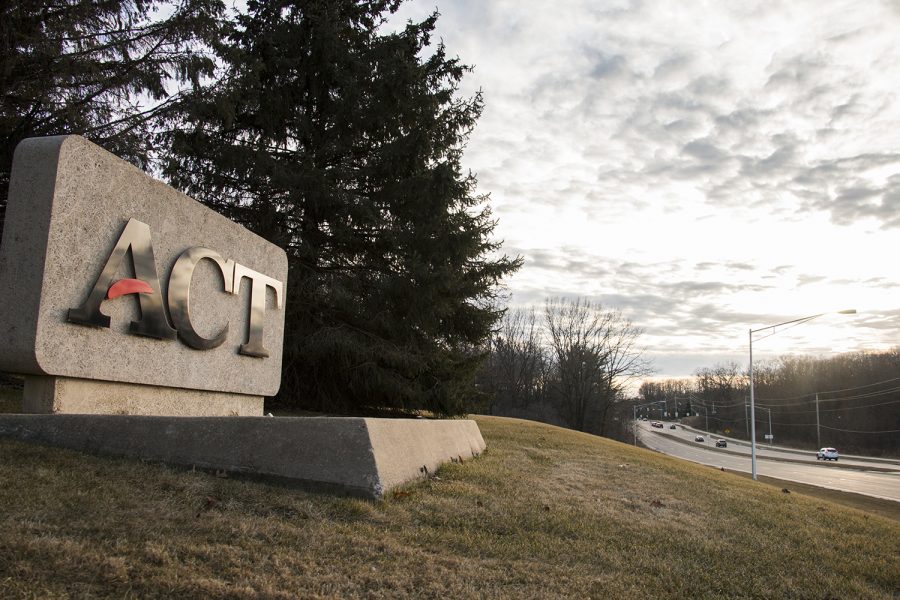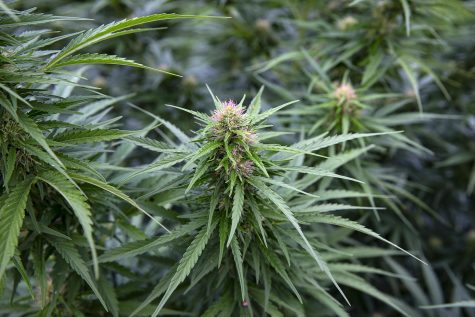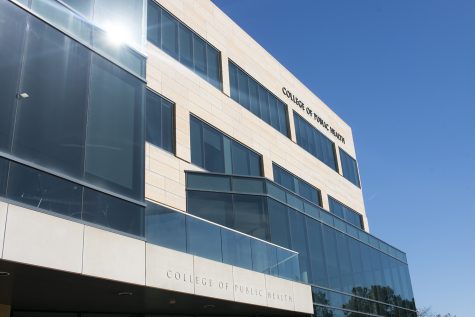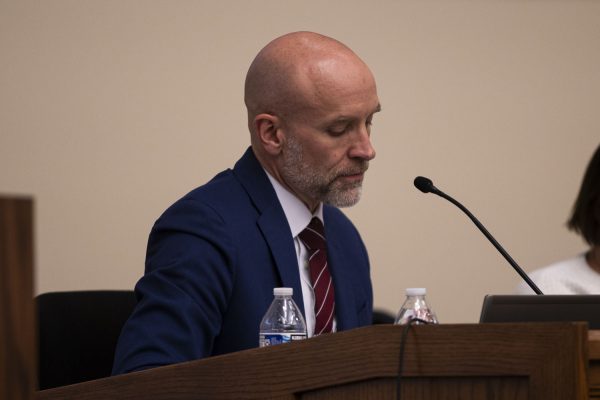ACT sees slight decline in scores in Iowa, state average among highest in the nation
The ACT sign is seen outside of the ACT Headquarters on Monday, March 5, 2018. ACT offices are expected to experience upcoming lay-offs.
November 11, 2019
Iowa students’ average ACT score declined slightly since last year, according to ACT’s “Condition of College and Career Readiness” report released Oct. 30, but Iowa’s average composite score remains above the national average.
Iowa and South Dakota tied for the highest average score in the nation at 21.6 out of 36. Both states tested more than 50 percent of their graduating students.
Scores in Iowa have been on a slight decline since they reached an average of 22.2 in 2015. Iowa’s average last year was 21.8 out of 36.
For English, Iowa’s average score was 20.8, down from last year’s score of 21. The math score was 21, the reading score was 22.3, and the science score was 21.8.
In a press release from Oct. 30, Gov. Kim Reynolds and Iowa Department of Education Director Ryan Wise issued statements in response to Iowa having the highest average composite ACT score in the nation.
“Iowa’s leading the nation in ACT scores, an important measurement to determine college and career readiness,” Reynolds said in the prepared statement. “The results reflect our commitment to education and the need to do even more to better prepare our young people for the future.”
Both Reynolds and Wise acknowledged that Iowa has room to improve its average, with Reynolds mentioning the state should continue the development of programs connecting people with the training and education needed for successful careers.
“Schools are doing more than ever to ensure that all students are ready for the demands of college or career training,” Wise said in the prepared statement. “While there’s more to do, today’s news is a testament to all of the great work underway.”
The 22,965 students in Iowa who took the ACT last year made up 66 percent of the 2019 spring graduating class, the statement said.
A decline over one year is not something ACT typically puts a lot of stock into Ed Colby, ACT senior director of media and public relations, said, but seeing a decline over multiple years is something it watches for.
“We’re seeing some declining scores in Iowa, which yes, I would say is concerning,” Colby said. “Because we’re seeing them as trends, not just as a single year gauge.”
The biggest factor in college readiness is the quality and rigor of the high school students take, Colby said. It’s on the students themselves and their parents to make sure they’re taking the courses they need to succeed and the right number of classes in each subject, he added.
While ACT has seen a decline in English and math scores for Iowa students, the numbers follow national trends, Colby said.
The Iowa City Community School District is looking at more rigorous core curriculum for students, as well as initiatives on equal opportunities to make sure all demographics are served, district Assistant Superintendent Matt Degner said.
“I do think Iowa has something to be proud of that we lead the nation and in those scores overall,” Degner said. “So, I think in terms of the decline, I think we have more students taking the exam than we’ve had before. I think that we have more students that obviously still need some support though.”



















